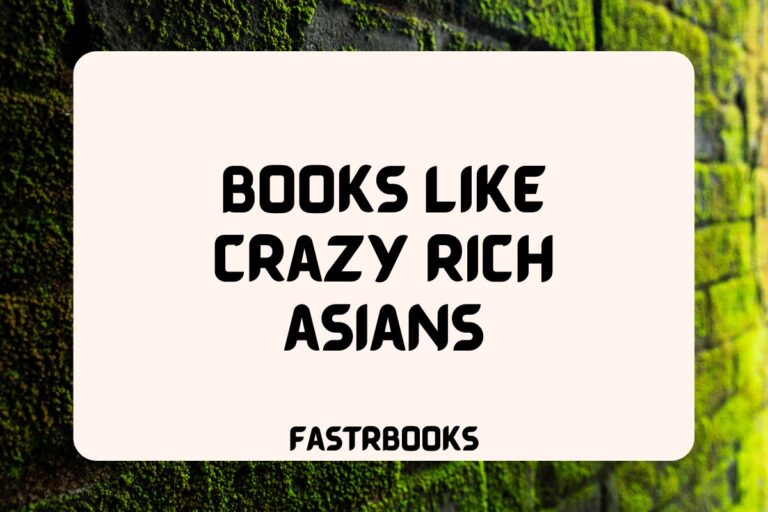10 Books Like Kingkiller Chronicles

Do you find yourself yearning for more tales consisting of rich prose, captivating characters, and a world that feels like a second home, akin to that of the Kingkiller Chronicles?
This post is your guide to a literary adventure, as we delve into captivating stories that echo the brilliance of Patrick Rothfuss’s masterpiece.
So, grab your favorite reading nook, settle in with a steaming mug of your favorite beverage, and prepare to embark on a journey through captivating tales that will leave you as enthralled as The Kingkiller Chronicle.
Books Like Kingkiller Chronicles
1. Mistborn: The Final Empire by Brandon Sanderson
Mistborn: The Final Empire is the first book in Brandon Sanderson’s Mistborn series, set in a dark and oppressive world where ash falls from the sky, and the power structure is held by the immortal Lord Ruler.
The story follows Vin, a street urchin with a rare magical ability, as she joins a group of rebels planning to overthrow the ruling class. Sanderson’s unique magic system, based on metals and their consumption, provides a fresh take on fantasy.
Major Similarities:
Like The Kingkiller Chronicle, Mistborn: The Final Empire features a well-developed and unique magic system that is central to the storyline. Both novels involve a coming-of-age story where the protagonist grows into their power and uncovers hidden truths about themselves and the world around them.
The intricate world-building and the blend of personal growth with epic storytelling are aspects that fans of Patrick Rothfuss will appreciate in Sanderson’s work.
2. The Lies of Locke Lamora by Scott Lynch
The Lies of Locke Lamora is the first book in the Gentleman Bastard series, offering a thrilling mix of heist story and fantasy adventure. It follows Locke Lamora and his band of thieves as they pull off daring cons in the city of Camorr, a place rich with both lavish wealth and brutal crime.
Scott Lynch combines witty dialogue, complex characters, and a vividly realized setting to create a gripping narrative.
Major Similarities:
Both The Kingkiller Chronicle and The Lies of Locke Lamora feature protagonists who are clever and resourceful, often relying on their wits to navigate the challenges they face. The richly detailed world-building immerses readers in a unique fantasy setting, and the blend of humor, drama, and action parallels the storytelling style found in Rothfuss’s work.
Additionally, the themes of friendship and betrayal are explored deeply in both series.
3. The Way of Kings by Brandon Sanderson
The Way of Kings is the first installment in the Stormlight Archive series, set in the tumultuous world of Roshar, a place frequently ravaged by supernatural storms.
The novel weaves together multiple viewpoints, including Kaladin, a soldier turned slave who discovers his unique abilities; Shallan, a young woman seeking to save her family; and Dalinar, a highprince haunted by visions. Sanderson crafts a complex narrative that explores themes of leadership, honor, and survival.
Major Similarities:
Similar to The Kingkiller Chronicle, The Way of Kings excels in deep character development, expansive world-building, and a sophisticated magic system.
Both authors dedicate significant attention to the history and lore of their worlds, enriching the narrative with a sense of depth and realism. The epic scope and the gradual unveiling of mysteries surrounding the protagonists and their destinies resonate with fans of Rothfuss’s series.
4. The Warded Man by Peter V. Brett
The Warded Man is the first book in the Demon Cycle series, set in a world terrorized by demons that emerge from the ground each night. The story follows three main characters—Arlen, Leesha, and Rojer—as they navigate a life filled with danger and discover unique powers that could change the fate of humanity.
Brett explores themes of fear, resilience, and the power of human ingenuity in the face of darkness.
Major Similarities:
Both The Kingkiller Chronicle and The Warded Man focus on characters who start with humble beginnings and grow to become pivotal figures in their world’s fate. The presence of a pervasive threat that shapes the societal structure and the characters’ lives draws a parallel between the two series.
Furthermore, the development of personal abilities and the exploration of ancient knowledge are key elements that fans of Rothfuss will find appealing in Brett’s work.
5. The Farseer Trilogy by Robin Hobb
The Farseer Trilogy begins with Assassin’s Apprentice, introducing FitzChivalry Farseer, a royal bastard trained as an assassin in the service of his uncle, the king.
Robin Hobb presents a compelling tale of court intrigue, loyalty, and the struggle of a young man to find his place in a world that values power above all. The series is renowned for its deep character exploration and the complex relationships that bind the characters together.
Major Similarities:
Like The Kingkiller Chronicle, The Farseer Trilogy places a strong emphasis on the development of its protagonist from childhood into adulthood, against a backdrop of a richly detailed fantasy world. The themes of identity, destiny, and the burdens of legacy are prevalent in both series.
Hobb’s focus on the emotional and psychological growth of Fitz mirrors Rothfuss’s nuanced portrayal of Kvothe, making The Farseer Trilogy a compelling read for those who appreciate the depth of character and narrative complexity in The Kingkiller Chronicle.
6. Shadow and Bone by Leigh Bardugo
Shadow and Bone is the first book in the Grisha Trilogy, set in the Russian-inspired world of Ravka, which is divided by a massive barrier of darkness crawling with monsters. The story centers on Alina Starkov, a young soldier who discovers she possesses a unique power that could be the key to saving her country.
As she is thrust into the world of the Grisha, a magical elite led by the mysterious Darkling, Alina must navigate a complex web of politics, power, and love.
Major Similarities:
Like The Kingkiller Chronicle, Shadow and Bone features a young protagonist coming into their own power and grappling with the weight of expectations and destiny.
The detailed world-building and the exploration of a unique magic system are aspects that fans of Rothfuss will find appealing. Both series also delve into themes of identity and the struggle to belong in a world filled with conflict and division.
7. The Bone Season by Samantha Shannon
The Bone Season introduces a dystopian future where a young woman, Paige Mahoney, navigates a world in which clairvoyants are hunted by a totalitarian government.
Working in the criminal underworld of London, Paige’s life takes a dramatic turn when she is captured and taken to a secret city governed by a powerful, otherworldly race. Shannon crafts a story of rebellion, survival, and the fight for freedom.
Major Similarities:
Both The Kingkiller Chronicle and The Bone Season present a world where knowledge and power are closely guarded, and the protagonist must learn to harness their unique abilities to survive.
The themes of oppression and the quest for autonomy are central to both narratives, as is the journey of the central characters towards understanding their true potential and the complex societies in which they live.
8. The Priory of the Orange Tree by Samantha Shannon
The Priory of the Orange Tree is an epic standalone fantasy that weaves together the tales of Ead Duryan, a lady-in-waiting in the court of Queen Sabran the IX, and Tané, a dragon rider on the other side of the world.
Their stories intersect against a backdrop of ancient myths, draconic lore, and looming war. Shannon’s world is vast, featuring intricate politics, religions, and cultures that enrich the narrative with depth and complexity.
Major Similarities:
Like The Kingkiller Chronicle, The Priory of the Orange Tree offers readers a rich tapestry of history and lore, underpinning a story of personal growth, adventure, and the fight against a dark threat.
Both novels excel in creating a sense of history and depth to their worlds, with detailed magic systems and a focus on the power of stories and myths. The epic scope and the development of a diverse cast of characters will appeal to fans of Rothfuss’s intricate narratives.
9. The Poppy War by R.F. Kuang
The Poppy War is the first book in a trilogy inspired by 20th-century China, focusing on Rin, an orphan who shocks everyone by acing a national exam and earning a place at the prestigious military academy of Sinegard.
There, she discovers her aptitude for the almost-mythical art of shamanism, just as her country finds itself on the brink of war. Kuang’s novel is a gripping blend of military strategy, shamanic magic, and the harsh realities of war.
Major Similarities:
Both The Kingkiller Chronicle and The Poppy War feature protagonists who rise from obscurity to discover their immense potential and face the daunting challenge of navigating a world at war.
The emphasis on education, the development of magical abilities, and the exploration of themes such as power, revenge, and the cost of ambition draw parallels between the two series. Kuang, like Rothfuss, excels in building a complex and morally ambiguous world where choices have profound consequences.
10. The Goblin Emperor by Katherine Addison
The Goblin Emperor tells the story of Maia, the least-favored son of the Emperor of the Elflands, who unexpectedly ascends to the throne after his father and brothers are killed in an airship crash.
Thrust into a court full of intrigue, politics, and prejudice, Maia must navigate his new role as emperor, seeking allies and understanding in a world that seems inherently hostile to him. Addison crafts a narrative that focuses on character development and the complexities of ruling.
Major Similarities:
Similar to The Kingkiller Chronicle, The Goblin Emperor explores themes of unexpected responsibility and the growth of its protagonist in the face of adversity. While the focus on courtly intrigue and political maneuvering is more pronounced in Addison’s work, both novels share a deep exploration of character, the challenges of leadership, and the quest for identity in a complex and often unforgiving world.
The emphasis on personal growth and the development of empathy and understanding in leadership are particularly resonant for fans of Rothfuss’s series.






